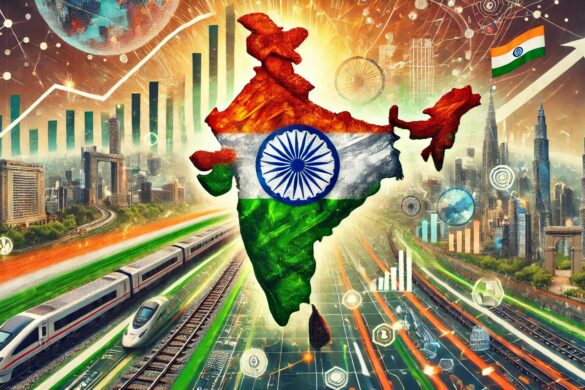Table of Contents
Financial Inclusion of women is a critical tool that can no longer be ignored for socio-economic development of India and for empowering it’s women
India traditionally has been a patriarchal society. It has historically ignored women when it comes to financial inclusion and financial independence. Women in rural and marginalized communities face many more barriers to financial inclusion than females in urban areas. However, this is changing at a fast pace. Indian women today irrespective of the cities are seeking education and skill based trainings. They have jobs and are excelling at what they do. They are opting to work than being home and than being dependent on their male counterparts and family members.
Indian Government is also playing it’s part rather well by bringing in schemes and opportunities for women. By providing women access to financial services such as bank accounts, credit, insurance, and digital payment systems, India is empowering them to contribute more effectively to the nation’s economy and enhance their quality of life.
Let’s explore the importance, challenges, and initiatives related to empowering women through financial inclusion in India.
Importance of Financial Inclusion in Women Empowerment
1. Financial inclusion gives women the tools and confidence to save, invest, and borrow. It empowers them to manage their own finances, make decisions about their own money, and also contribute to family income. Once there is access to financial services, Indian women have always shown the entrepreneurial spirit to start income-generating activities like farming, or small businesses. Many have scaled their businesses to great heights.
2. Financial inclusion and financial independence brings social empowerment. This improves their status and respect within the family and the community. Women gain confidence to participate in decision-making processes, both at home and in wider social contexts, paving way to greater gender equality.
3. Many government schemes in India which are aimed at poverty alleviation are linked to financial services. Direct Benefit Transfers (DBT), pensions, and subsidies require women to have access to bank accounts. Financial inclusion ensures that women get their bank accounts and can benefit directly from these schemes without the interference of intermediaries or third parties reducing corruption in the bureaucratic processes.
4. Empowering women through financial inclusion gives them access to better education and skill training, in turn giving them ability to advocate and save for their children’s education and healthcare. This helps to break the cycle of poverty.
Challenges Faced by Women in Financial Inclusion
Indian society is a multi-faceted and a complicated one. Women in India face several challenges in accessing financial services:
1. Financial literacy remains a significant barrier for women across India, be it rural or urban areas. Our education systems are flawed enough to not include financial literacy from the beginning and then most of the money decisions are made by the male counterparts of the family. Most women are either unaware or under confident on to utilise the services available to them.
2. Cultural and social norms as well as traditional gender roles often discourage women from taking part in financial decision-making. In our society women’s participation in economic decisions is always secondary to men’s. In some cases, women may not even have control over their earnings or bank accounts, limiting their financial autonomy.
3. While technology and digital India initiatives are dissipating geographical barriers in accessing banking services, the ease of access is not upto the mark. Unified payment interface (UPI) has made lives of people in rural India much easier, however, at present India is only playing catchup and dealing with the short comings in financial literacy. Women who may have access to internet, may not have the requisite skills. Those who would have the skills, may not have access to the means. The problems are multi-faceted and solutions are not easy.
Indian Government Initiatives Promoting Financial Inclusion for Women
Recognizing the challenges faced by women in India, the government has introduced various initiatives aimed at improving financial inclusion for women:
1. Pradhan Mantri Jan Dhan Yojana (PMJDY):
Launched in 2014, this national mission aims to ensure access to financial services, including savings and deposit accounts, remittances, credit, and insurance. As of 2023, a significant portion of the accounts opened under this scheme belong to women, ensuring that they have access to the banking system and formal financial products.
2. Mudra Yojana for Women:
This scheme provides financial support to women entrepreneurs, especially those engaged in small and medium enterprises. The scheme offers low-interest loans to help women start and expand their businesses, which has encouraged female entrepreneurship in sectors such as handicrafts, tailoring, and food processing.
3. Stand-Up India Scheme:
Focused on promoting entrepreneurship among women, particularly from marginalized sections like SC/ST, the Stand-Up India Scheme offers bank loans to women-led enterprises. This initiative promotes women’s financial independence by encouraging them to establish their own businesses and enter formal employment markets.
4. Self-Help Groups (SHGs) and Microfinance:
SHGs, particularly in rural India, have been instrumental in promoting financial inclusion. These groups help women pool their savings and access credit without the need for collateral. Microfinance institutions also offer small loans to women, enabling them to invest in small businesses, agriculture, or other income-generating activities.
5. Digital Financial Literacy Campaigns:
The government has initiated various campaigns to enhance financial literacy, focusing on the use of digital payment systems. Programs like DigiDhan aim to educate women, especially in rural areas, about digital banking and e-wallets, helping them to overcome the barriers of the digital divide.
A society is as independent and progressive as it’s women. Financial inclusion for Women in India is a powerful catalyst for women’s empowerment and independence. By providing women with access to financial literacy, services and independence the country can help uplift families, communities, and the economy as a whole.










